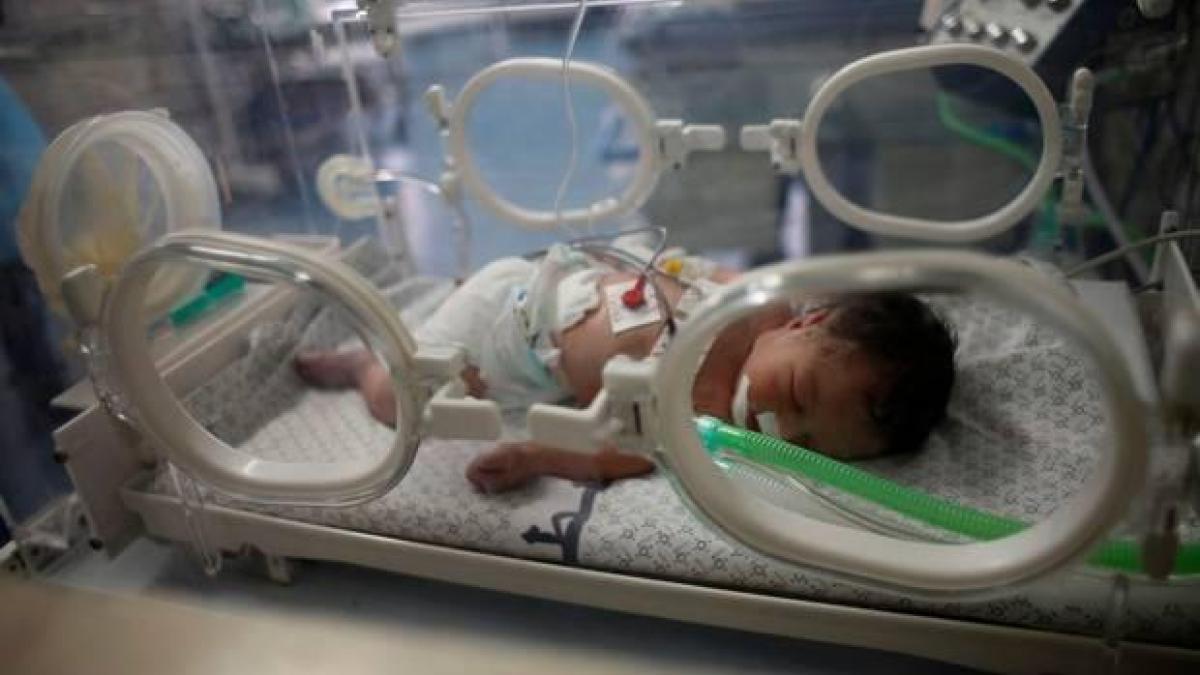According to Kristi Raik, director of the Estonian Security Policy Research Center, Finland could become a member of NATO if it so wishes.
When In December, Russia published a list of requirements for the United States and NATO, and Estonia fell silent. In general, Estonia’s relationship with Russia is tense and commentary is cautionary.
Maybe the silence was due to Christmas time, he thinks Kristi Raik.
Raik heads the Estonian Foreign Policy Institute, which operates as part of the Estonian Security Policy Research Center (ICDS). He has worked as a senior researcher at the Finnish Foreign Policy Institute and is also a docent in political science at the University of Turku.
Russia’s demands led to the president Sauli Niinistö took a stand on them in his New Year’s speech. It was reminded in the speech that Finland can apply for membership in the military alliance NATO if it wishes. Niinistö encouraged to discuss the matter.
Read more: Read President Niinistö’s speech word for word here
“Estonia has always been interested in Finland’s possible NATO membership as the number one issue,” says Raik. “However, Estonia does not understand how fundamentally important the NATO option has been for Finland when Finland has maintained its own room for maneuver in relation to Russia.”
Director of the Estonian Foreign Policy Institute Kristi Raik in spring 2019 in Tallinn.
For Estonians Finland’s NATO option has been a matter of hilarity: the debate will only begin when the situation tightens, but the application for membership will still not be sent.
Estonia, Latvia and Lithuania joined NATO back in 2004. From the Baltics, the pain of the northern neighbor may look like the snow of last winter.
Finland has not seen such a heated NATO debate since Russia took over Crimea from Ukraine in 2014. In recent days, several MPs have spoken out in favor of NATO membership, such as the Greens and the RDP.
“One of the differences I see in the debate between Finland and Estonia is the role of the EU in security policy. In President Niinistö’s speech, there was obvious dissatisfaction with the EU’s actions, but it was unclear what actions are expected from the EU,” says Kristi Raik.
Finland is left alone with the view that the EU’s role in defense policy should be strengthened. Sweden is also cautious.
Raik points out that large EU countries such as Germany and France are already in NATO and the actual regional defense is not on the EU’s agenda.
“France is the driving force behind defense issues in the EU, but it promotes its own interests and preparing for the threat of Russia is not central to France. The Baltic states and Poland have also been reluctant to put defense policy on the EU agenda any further. ”
Raik believes that reflection on EU defense policy is a fundamental issue. He has been wondering what the EU could do.
“It would also be in the interest of the Baltic countries to find content that would support the security of the Baltic Sea region. It would also be necessary to strengthen the diplomatic role. “
Negotiations Russia’s demands will begin in Geneva on January 10th. According to Raik, it is not clear what the US positions are in the negotiations.
“It is a bit unclear how strongly the United States would react if Russia used more military force against Ukraine. It seems that Americans want to keep Europeans involved. But it feels like the United States is expecting Europeans to be clear about what Europe is ready for, among other things, tougher sanctions. ”
Nuclear submarine of the Russian Navy Dimitri Donskoi in the Gulf of Finland in summer 2018.
One of Russia’s demands is that NATO’s expansion to the east be suspended. What if it happens that Finland’s NATO option is likely to acidify?
Raik does not consider it likely that Finland will not become a member of NATO if it so wishes.
“It would seem to be a concession to Russia, and Finland is a strong candidate that meets the membership criteria better than some of the current members. In addition, for NATO, defending the Baltics would be easier if Finland and Sweden were members of NATO. ”
If If Finland decides to apply for NATO membership, Raik believes that it should be able to make sure that the process is fast and that the outcome is assured. In theory, this could be successful for NATO, which is considered bureaucratic, if the pressure is strong enough to generate political will.
“When times are easier, it’s easier to justify why membership isn’t needed. Now that the situation is alarming and the threat of war is being talked about in Europe, it is harder to justify not joining NATO. ”
In the short term, the application for membership could have consequences.
“It is worth considering how Russia would react to the application. The pressure and the tightening of the various means of influencing the hybrid would certainly come, ”Raik says.
“But you can prepare for them, and they shouldn’t be a reason not to apply or discuss applying.”
NATO Secretary General Jens Stoltenberg and President of the Republic Sauli Niinistö met at the opening of the European Center for Competence in Hybrid Threats in Helsinki in the autumn of 2017. Federica Mogherini (2nd right) and former Prime Minister Juha Sipilä (center)
Russia’s demands are primarily on Ukraine. The possible enlargement of NATO is also essential for Finland, but Raik believes that there is no reason for undue calm in the Baltics either.
It is possible that the Russian administration has felt that its moment has come when it sees signs of weakness in the West. The diplomatic attack is timed accordingly.
“Europe’s unity is on the test, as is its readiness to retaliate against Russia. They also have prices for European countries, ”says Raik. He cites as an example, for example, the change of German Chancellor, which confuses the political field.
“In this way, Russia is trying to dictate the security choices of Finland and Sweden as if it had nothing to do with independent states at all.”
Raik points out that there are risks to Russia as well. Russia is more likely to want to play a tough diplomatic game and get concessions from the West through it than to use more military force against Ukraine.
“It’s hard to see what Russia would win by attacking. Ukraine would fight, and international reactions will create their own pressure. ”
Aggressive from the point of view of behavior, the situation is similar to that of the Munich Agreement of autumn 1938. In it, Britain, France, and Italy surrendered and surrendered Czechoslovak Soviet territories to Nazi Germany to avert the threat of war. Hitler broke the treaties, and World War II broke out.
“The parables of the late 1930s have been used so much and lightly in the Baltic security policy debate before that they no longer seem credible. But right now, the alignment is more relevant than ever, and I don’t think we should go into concessions. ”
Raik stresses that there is no need to panic.
“Let’s stay calm and defend our own rights. There is no hurry with concessions, because there is a lot to lose in Russia as well. ”
Chairs of the Estonian and Latvian Foreign Affairs Committees: The Baltic Sea would become a safer place
HS asked the chairmen of the foreign affairs committees of the Baltic parliaments about the security policy situation in Finland. Chairman of the Foreign Affairs Committee of the Estonian Parliament Marko Mihkelsson considers that Russia’s aggressive actions call into question the balance of European security.
“The Kremlin’s aggressive foreign policy and propaganda that NATO is planning an attack calls into question European security status quon”Mihkelsson tells HS by e-mail.
Russia is now balancing the ethics of diplomacy on the borders, Mihkelsson writes.
In his opinion, the situation even requires intimidation against Russia.
“I am convinced that Northern Europe would become a safer place if NATO expanded to Finland and Sweden. It will also bring a whole new level to Nordic-Baltic co-operation. But ultimately, the decision is, of course, the solution of the sovereign states, Finland and Sweden. ”
Latvian Chairman of Parliament’s Committee on Foreign Affairs Rihards Kols points out that the Baltic Sea has been the subject of aggressive maritime and air activities by Russia many times since Russia took over Crimea and waged war in eastern Ukraine.
“The measures have even affected non-NATO countries such as Finland and Sweden. It is not surprising that such years of action in the Baltic Sea have led to a strengthening of NATO’s presence in the region. “
Like Mihkelsson, Kols emphasizes that applying for NATO membership is a political decision for the countries themselves, which requires an internal decision.
“But personally, I have always been a supporter of the idea of Finland joining NATO,” Kols writes.
“It would deepen our shared commitment to regional balance and security and facilitate our social, political and military resilience by creating deterrence to keep Russia out of our borders.”
.
#Security #policy #wrong #time #flexible #Russia #Baltic #security #experts






